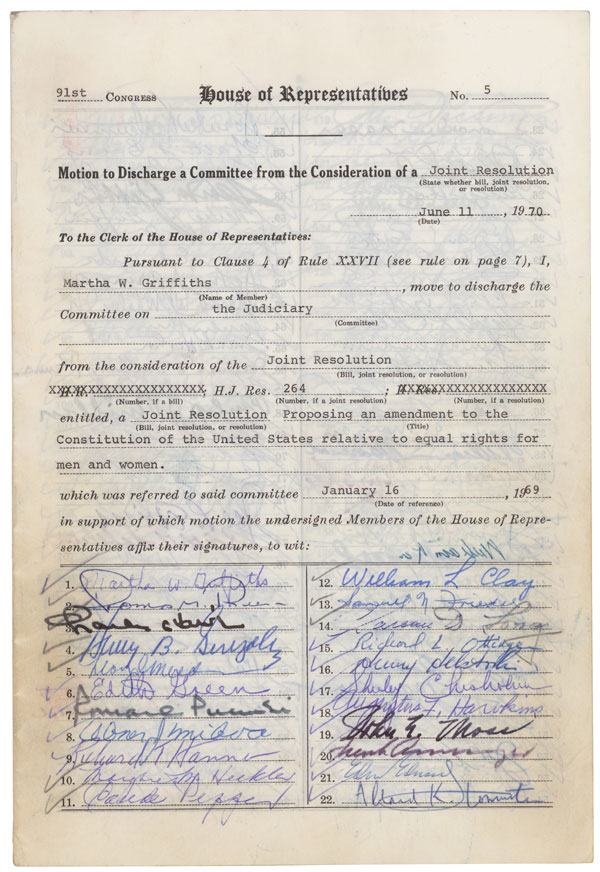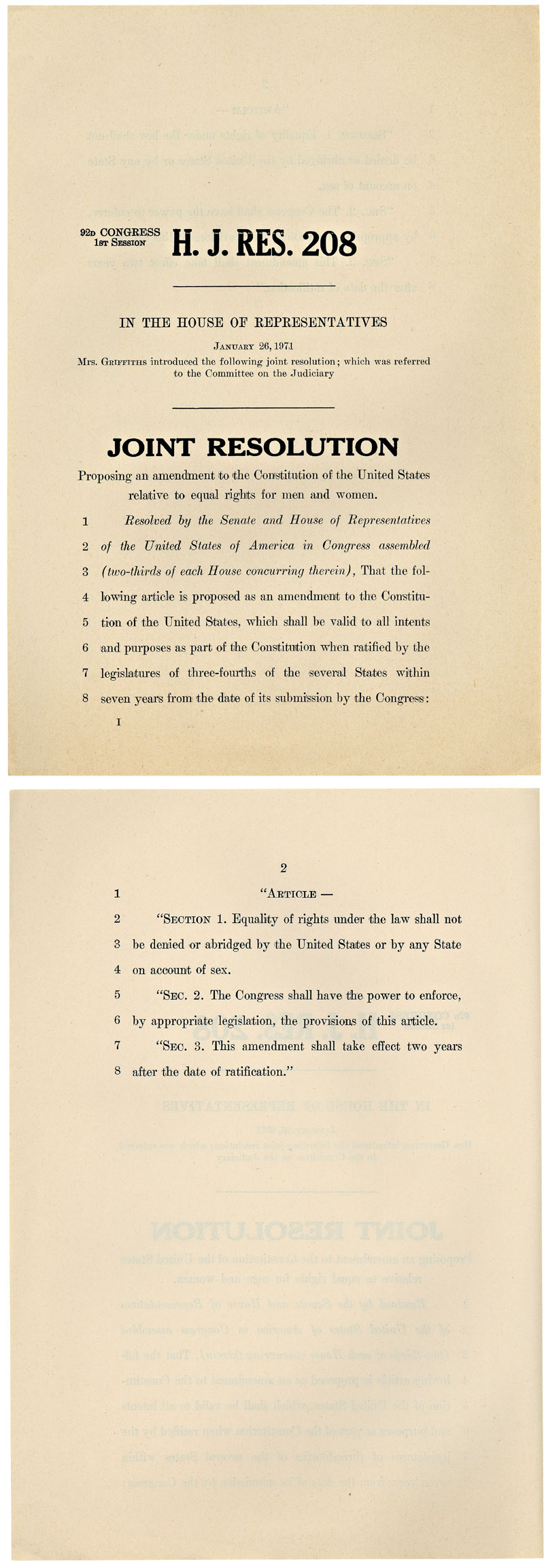|
|
Why the ERA? Why We Need the ERA:
We need the ERA to affirm constitutionally that the bedrock principles of our democracy – “all men are created equal,” “liberty and justice for all,” “equal justice under law,” “government of the people, by the people, and for the people” – apply equally to women.
- It is necessary to have specific language in the Constitution affirming the principle of equal rights on the basis of sex because for more than two centuries, women have had to fight long and hard political battles to win rights that men (at first certain white men, eventually all men) possessed automatically because they were male. The first – and still the only – right that the Constitution specifically affirms equally for women and men is the right to vote. Alice Paul introduced the ERA in 1923 to expand that affirmation to all the rights guaranteed by the Constitution.
- The practical effect of this amendment would be seen most clearly in court deliberations on cases of sex discrimination. For the first time, “sex” would be a suspect classification requiring the same high level of “strict scrutiny” and having to meet the same high level of justification – a “necessary” relation to a “compelling” state interest – that the classification of race currently requires.
- We need the ERA to clarify the law for the lower courts, whose decisions still reflect confusion and inconsistency about how to deal with sex discrimination claims. If the ERA were in the Constitution, it would in many cases influence the tone of legal reasoning and decisions regarding women’s equal rights, producing over time a cumulative positive effect.
We need the ERA to prevent a rollback of women’s rights by conservative/reactionary political votes, and to promote laws and court decisions that fairly take into account women’s as well as men’s experiences.
- Aren’t there already enough legal prohibitions of sex discrimination – the Equal Pay Act, Title VII and Title IX of the 1964 Civil Rights Act, the Pregnancy Discrimination Act, Supreme Court decisions based on the 14th Amendment’s equal protection clause, and more? Why are there still people saying, as Alice Paul did in 1923, “We shall not be safe until the principle of equal rights is written into the framework of our government”?
- The need for the ERA can be expressed simply as a warning. Unless we put into the Constitution the bedrock principle that equality of rights cannot be denied or abridged on account of sex, the political and judicial victories women have achieved with their blood, sweat, and tears for the past two centuries are vulnerable to erosion or reversal at any time – now or in the future.
- Congress has the power to make laws that replace existing laws – and to do so by a simple majority. Therefore, many of the current legal protections against sex discrimination can be removed by the margin of a single vote. While courts in the near term would still apply skeptical scrutiny to laws that differentiate on the basis of sex, that precedent could be undermined or eventually ignored by future conservative or reactionary courts. With a specific constitutional guarantee of equal rights through the Equal Rights Amendment, it would be much harder for legislators and courts to reverse our progress in eliminating sex discrimination.
We need the ERA to improve the standing of the United States globally with respect to equal justice under law. The governing documents of many other countries specifically affirm legal equality of the sexes (however less than perfect that ideal may be implemented).
We need the ERA to move beyond the struggle for it. We need to free the energies of the women and men who have spent countless hours, years, and even lifetimes working for this basic human right of equal constitutional protection. When we can redirect that energy and those resources to work on the many other challenges we face in common, we will truly have fulfilled the vision of suffragist leader and ERA author Alice Paul.


|
“Most reforms, most problems are complicated. But to me, there is nothing complicated about ordinary equality.” Alice Paul
|


